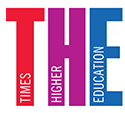Royal Netherlands Academy says extra funding and time cannot ‘truly compensate’ those who began their research careers in lockdown
Young academics who began their doctorates while Europe was in lockdown need more than time extensions to keep pace with other generations, according to a panel of Dutch experts.
Universities must make sure that pandemic PhD students get help that “truly compensates” for their missed opportunities, a report from the Royal Netherlands Academy of Arts and Sciences (KNAW) has said.
“I saw how so many struggled under confined circumstances: very small student flats, hot under the roof, bad internet access, loneliness. The mental pressure was extreme,” Natali Helberger, chair of the academy committee on pandemic impacts, told Times Higher Education.
Professor Helberger, who specialises in law and digital technology at the University of Amsterdam, said extra pandemic-related funding from the Dutch government to universities last year had meant some PhDs were extended by months, but that more help was needed.
“It worked for some but not others. If you depend on collection of data or ethnographic research, or if you’re stuck at home with very young children or mental health problems, very likely the time lost is more than a couple of months,” she said.
Extra support from universities should include giving young researchers more opportunities to travel to conferences, mentoring and coaching, the academy argued.
Last month, the Dutch education minister Robbert Dijkgraaf set out his vision for research and higher education to parliament.
In his letter, he acknowledged the specific workload pressures on early career academics, proposing a boost in the budget for individual grants from €100 million (£85 million) to €300 million a year. However, only assistant professors who started in 2022 are eligible.
While Professor Helberger said the grants address “some of the underlying causes and cracks in the system”, which meant young researchers were hit hardest, they would not help those still finding their feet after a pandemic start.
“We have a very concrete problem of a generation of researchers that suffered delays and setbacks as a result of the pandemic, and because of this may not even be able to benefit from these plans,” she said.
Those in the generation between pandemic starters and this year’s assistant professors could also miss out, prevented from getting extended contracts by labour market rules. The KNAW report calls on employment minister Karien van Gennip to create an exemption allowing universities to extend the contracts of the 500 to 1,000 postdocs affected, rather than being forced to hire them permanently.
“Urgent action is needed to repair exacerbations in inequalities due to the pandemic and to prevent a ‘lost generation’ of academics,” the authors say.
“We’re now transitioning back from the pandemic into some new normal for as long as it takes. Something we observed is a lack of vision forming in how to deal with the consequences,” said Professor Helberger.
Aside from urgent action by both governments and universities, the panel recommends all institutions have post-Covid teams to keep monitoring for longer-term impacts of the pandemic on careers, research practices and the academic community.

0 Comments